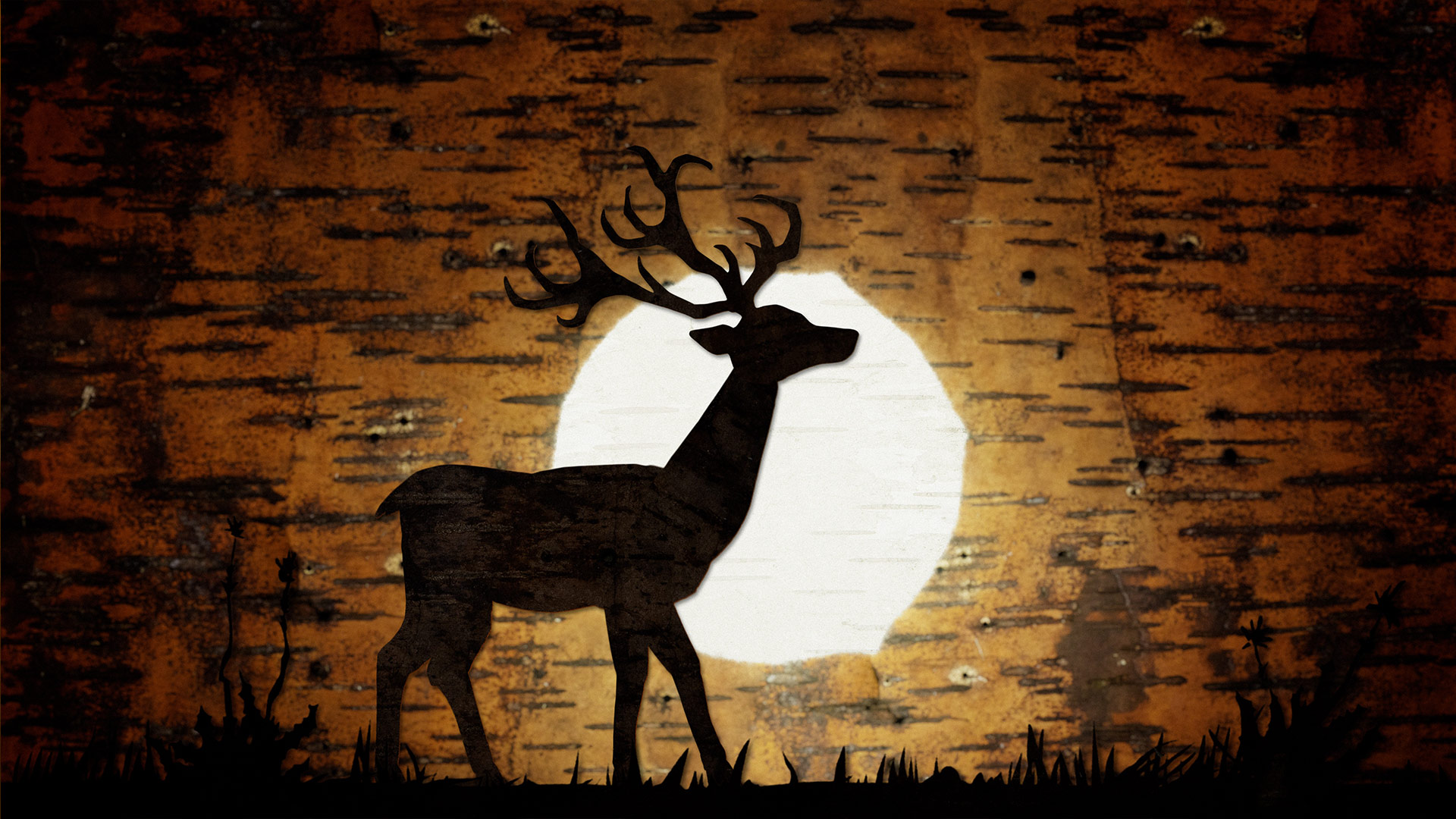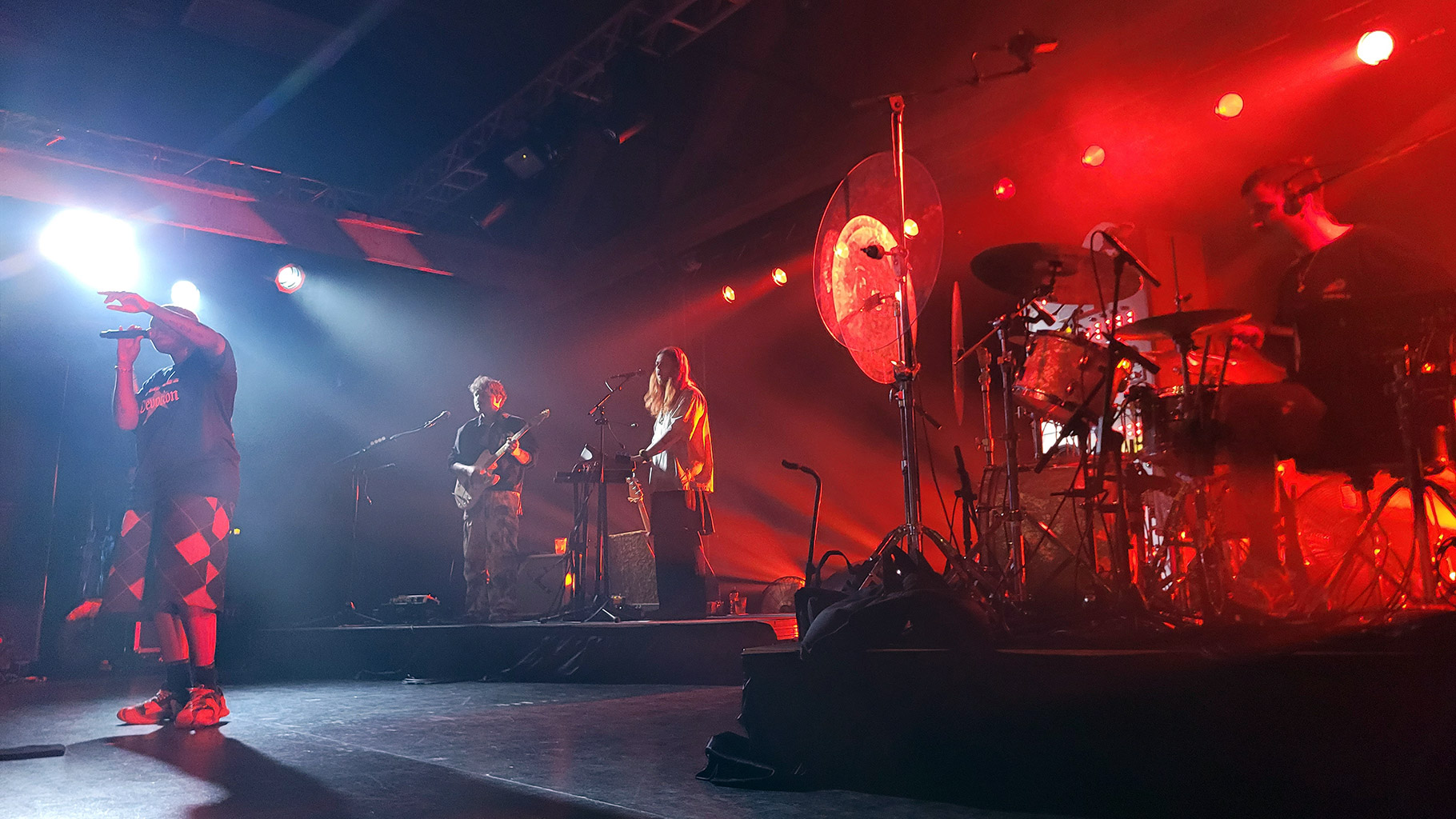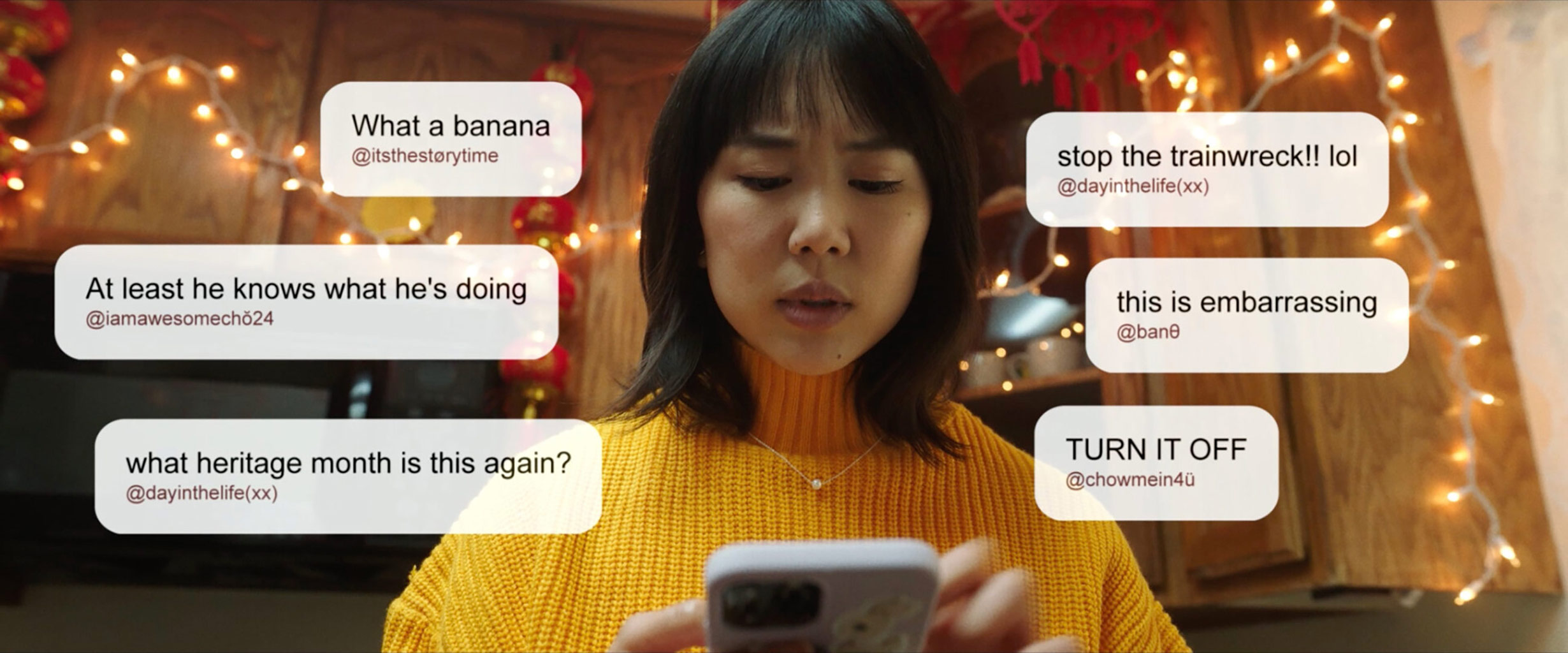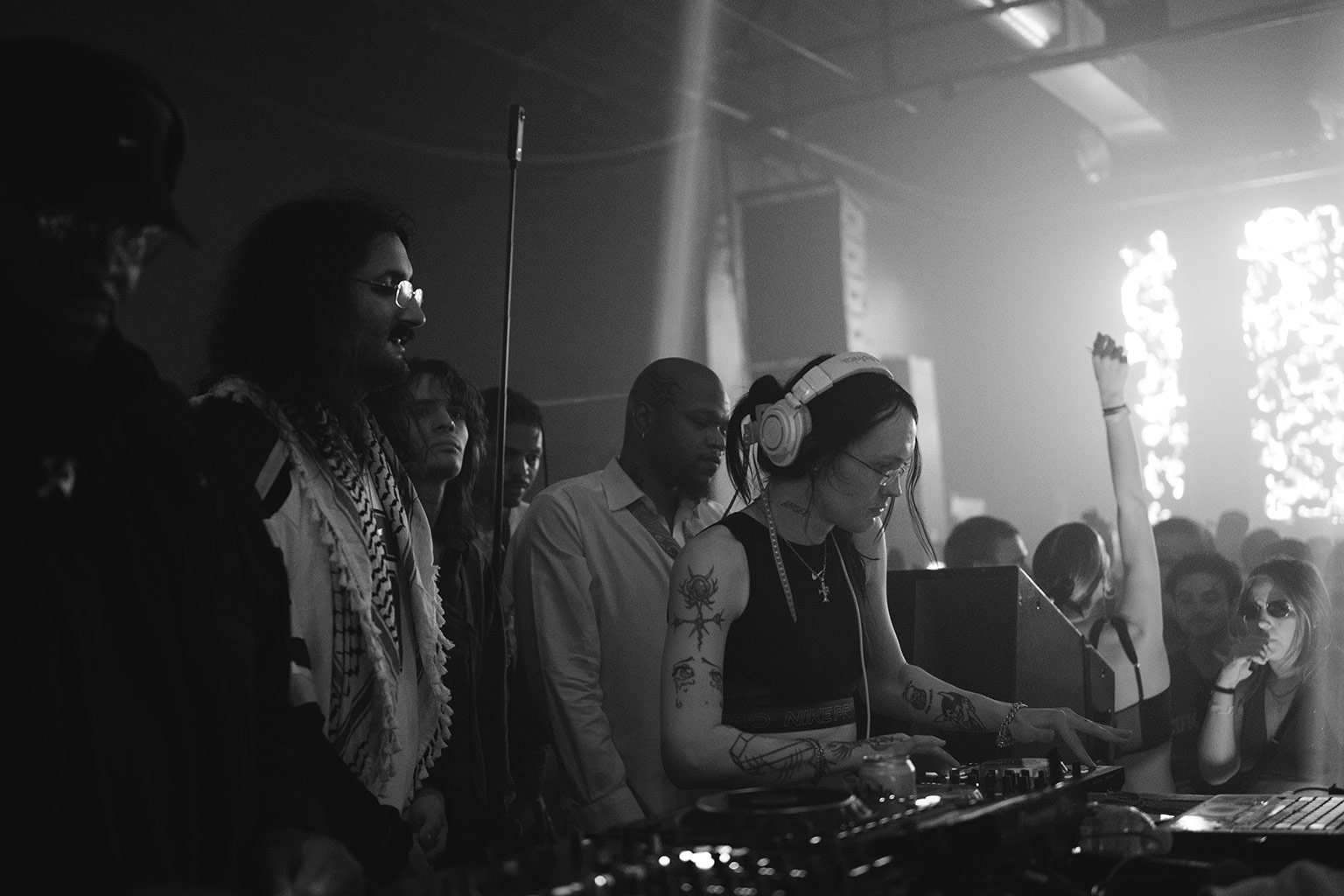The ambient/experimental musical showcase takes place in a beautiful, giant brick building in the Seattle neighborhood of Wallingford, a sleepy zip code more known for its single family residential units and restaurants than anything else.
The space is called The Chapel with good reason. High arches tower into the air in Renaissance-influenced glory and stained glass windows line both sides of the open room, suggesting more of a connection to a higher power than to a musical influence. The hardwood floors are lined with rows of chairs angled into two sections, after soaking it all in, you realize that what you are about to witness at Substrata Festival is not a show in traditional sense of the term; you are about to witness a performance.
Lawrence English
Lawrence English, who the curator Rafael Anton Irisarri lavishly praised as an inspiration for the conception of the festival, opened the entire night with a simple request: that everyone lie on the ground. And if not, then sit by the windows because it is so nice out, he laughed. “The sound is all around you.”
English’s set began with torrential downpours, howling winds, and metal screen doors slamming open and shut. It was a soundscape of the most enveloping kind — of a storm, specifically a coastal storm. Anyone that has ever been on the coast when nature slams in, knows that it really is an oddly calming sound hearing the destructive and dominant force of nature behind the safety of a man made wall. English’s music was violent, raw, and powerful. The bass was so heavy the floor vibrated into the deepest recesses of your mouth, revealing fillings from childhood cavities you’d been hard pressed to remember. As you closed your eyes and focused, it was easy to become completely enveloped and awash in his distortion and tweaks. There were different emotional responses, too. The oceanic roar reminded me of my dead Grandmother and her love for the Oregon coast; the guy next to me: he dozed off for a bit.
Robin Rimbaud (Scanner)
On Saturday afternoon, instead of being outside in glorious weather, the artists and about thirty people showed up for a thought-provoking half-hour talk from Lawrence English, after which a panel discussion on noise, volume, spirituality, and other related topics finished off the hour. Robin Rimbaud aka Scanner referred to the amazing jumps in technology that have forced the common human experience to change the fundamental ways in how we communicate. We used to have to talk face-to-face with others. Now we can tell Siri to text a friend. “We’ve dealt with something in 20 years that we probably should have adapted to over the course of 150 years,” he said.
If anyone takes this struggle to adapt, it is Scanner, whose earlier works were controversial in their use of discovered mobile phone conversations of strangers. As Scanner took the stage, he smiled when the echoes of the kid’s concert across the street collided with the Chapel acoustics.
LIVE SHOW REVIEW CONTINUED BELOW
“Tonight I’ll be doing a special collaboration,” he laughed, before delving into a sound that was like watching the best of a movie soundtrack unfold right before your eyes, with no movie attached. His sound was a bit more mellow and melodic compared to Lawrence English’s work, but he is able to generate a different sort of intensity — not so much a physical kind, but one of emotional despair. The last track he played featured a vocal conversation that ended with an older man meekly saying, “Hello? Hello? Is anyone there?”
The fact of the matter is that someone isn’t always there. Much of English’s talk on Saturday revolved around mankind’s ability to generate noise and its inability to understand the chatter of other species. As he said, “[Humans] are the most successful species of creating interference well beyond our capability to hear.”
The healthy human ear, in a very general manner of speaking, can hear wavelengths from about 20 Hz to 20,000 Hz. Yet we generate thunderous amounts of noise in the form of cellular data and wireless signals that cannot be heard by the human ear. But can other species hear them? Sonar has been said to disrupt the echolocation of dolphins and whales, and some theories promote a link between low frequency saturation and the collapse of bee colonies. Because noise is an unwanted artifact in the chain of communication, English says, it is important to figure out, “how we create the most direct communication without clouding things.”
Daniel Menche
Menche is a Portland-based artist whose music is probably as close as you can get to instigating a physical reaction in the listener. Sitting cross-legged and being bathed in blood red light in front of harshly contrasted visuals of nature, Menche’s performance was less about thinking about what he was doing and more about just reacting to what he was doing. With a mic hooked up to a chalice, Menche used his teeth to hold a gold chain and swirled his head up and down and around, dragging this chain across the cup — creating harsh noises, which he turned and twiddled into sounds even harsher. At points, he screamed savagely into the atmosphere he was creating, a desperate howl in search of a landing place somewhere. It landed nowhere. Menche’s performance was violent without actions, borderline revolting, and yet altogether absolutely engaging. In the same way we stare at horror films with fingers halfway covering our eyes, Menche elicits such a reaction with sounds. People all over the performance space had their fingers halfway in their ears, not able to proceed through the entire set without protection, but terrified of what might happen without.
LIVE SHOW REVIEW CONTINUED BELOW
Widesky
New Mexico-based experimental artist Widesky opened the Saturday night showcase with gorgeous soundscapes built off of delayed guitar strums and field recordings of babbling brooks and chirping birds. If anything, Widesky showcased the beauty of the variety that Substrata so successfully demonstrates. Whereas Menche and English’s performances captured the ferocity of nature, Widesky showed the beauty of it. It was an interesting juxtaposition; two very similar focuses on nature from two completely different perspectives, audibly speaking.
Scott Morgan (Loscil)
Scott Morgan aka Loscil was commissioned to write a soundtrack of the Malcolm Lowry short novel Lunar Caustic as part of the Wist Rec label’s Book Report series. Festivals always pull out the finest surprises in people, and Loscil decided to join up with Seattle-based pianist Kelly Wyse to perform a live version of a commissioned work dubbed “City Hospital”. Like the main character Bill Plantagenet from the novel, Morgan and Wyse performed a gorgeous modern classical set (where the acoustics of The Chapel truly shined), which mirrored the rise in intensity of the book, where the character is committed to the New York mental hospital for madness. Loscil incorporated little bits of droning electronics, but the tone was set by the part he wrote for the piano. The result was perhaps the best performance of the whole weekend.
Tim Hecker
Tim Hecker’s Ravedeath, 1972 was one of the best albums to come out last year, and the young Montreal-based composer was the odd man out on the Saturday billing. The man has no shame in his love for increasing the volume knob (he virtually admitted during the panel discussion to disliking his music unless it was blowing eardrums), and with that in mind, the crowd was well prepared for what Hecker was bringing to the table. His performance ran the gamut of the decibel levels, starting off with the softer intros to Ravedeath, 1972 before building into a wall of sonic assault that few men can stand up against. Just as quickly as he built up the insurmountable wall, Hecker began to tear it down, brick by brick, but in no apparent order.
“I like the vagaries of not knowing,” he said during the discussion, and this is apparent listening to his music. Hecker takes you on a musical journey, where half the time it seems like the leader isn’t even aware where he is going, but at the end of this journey is one of the brightest lights you’ve ever seen, and if you can squint hard enough, you’ll truly understand. Earplugs be damned for Hecker’s set. It is worth the pain to make it through, because when all is said and done, you aren’t quite aware of what the wall of noise that washed over you did to your body; you just know it was a good thing.
Pan*American (Mark Nelson)
Pan*American is the alias of Mark Nelson, who unlike most of the other performers eschewed the electronic element for a more traditional form of ambient/drone, through the use of guitars and pedals. Joined by drummer Steven Hess, the duo was the perfect way to close out the evening, with nothing too jarring to upset the stomach, but nothing too soothing to send you off to a dream. As the set ended and the two exited to thunderous applause, it was clear that Substrata 1.2 was one of the most well thought out festivals in quite some a while.
Ω







